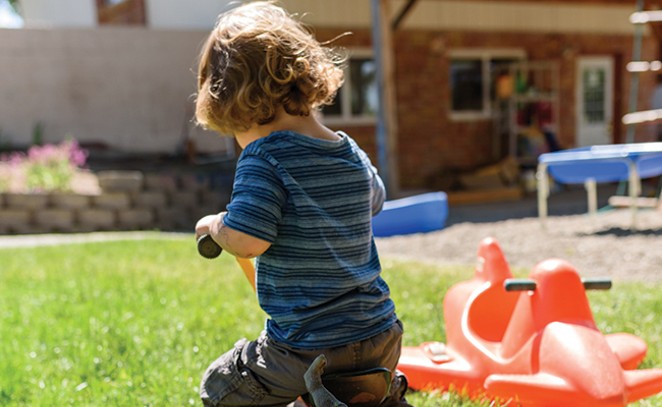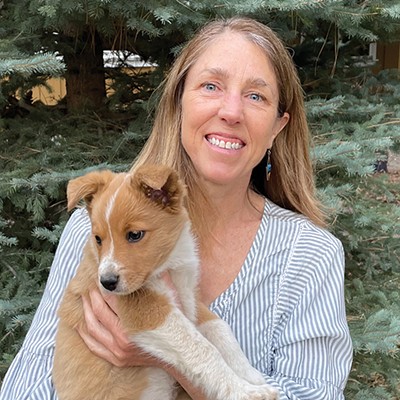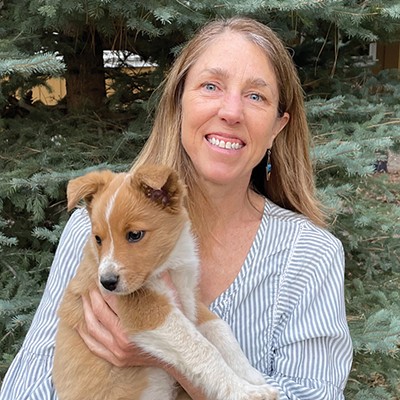Most parents would agree that raising children is never a piece of cake, but for some, this sentiment crosses into the realm of the impossible. An individual who is ill-equipped for being a parent can create chaos and turmoil in a child’s life, which can then be detrimental to the child’s wellbeing down the road.
Numerous stressors may lead a parent to feel helpless and unable to assume this important role, including: unemployment, houselessness, substance abuse, as well as past traumas and domestic violence issues.
Parents do have support for these issues within the community. MountainStar Family Relief Nursery is one organization that is committed to the philosophy that a child should not have to take the blows of their family’s circumstances. At MountainStar, help comes in the form of therapeutic classrooms, emergency food boxes, respite care, parenting support and simply human connection for families.
Speaking with Staley Micken, Development Director for MountainStar, is like a breath of fresh air. She is naturally optimistic and exudes excitement for her work.
“We’re expanding, reaching families and inviting new residents in,” she shares. The newest site in La Pine should be ready this January.”
With fully functioning classrooms in Bend, Redmond, Prineville and Madras, La Pine will be the cherry on top when it comes to outreach in Central Oregon.
MountainStar fights tirelessly to end child abuse and neglect in the region. Unfortunately, children who are abused battle the negative impact of their trauma and delayed development for the rest of their lives.
While many non-profits struggled during the pandemic to stay open and meet their clients’ needs, Micken says, “We did awesome!”
Staff at MountainStar adapted quickly to the new rules, figuring out ways to stay connected to vulnerable families.
Micken continues, “Staff were committed to their families and soon implemented FaceTime calls and curbside visits. Some even made phone calls in the evenings to check in.”
When times got tough for families in the area, with some even calling to say they had run out of food, staff reacted by delivering food boxes, diapers and other essential supplies.
How do vulnerable families know about MountainStar’s services and come to ask for help? “Mostly by word of mouth,” says Micken, but also through social services, St. Charles Medical Center and other referral agencies. “If someone in a community is receiving free diapers, their neighbor will certainly ask questions and want to learn how they too can receive services.”
MountainStar’s offerings are always free and participation in the programs is 100% voluntary. This is crucial to eliminating any fear that, by engaging in services, a family may be in danger of losing their children.
“Most of our parents want to be the best parents they can be,” Micken shares. “They just lack the tools and that’s where MountainStar comes in.”
New to the program is also outreach work in many of Central Oregon’s rural areas. Operating outside the classroom model in town, outreach staff make home visits and bring deliveries to those in need.
When asked who or what is responsible for their continued success as a non-profit, Micken answers confidently, “Kara.”
“She’s a woman of vision and drive,” says Micken, referring to Kara Tachikawa, the new Executive Director MountainStar hired about one year ago. “She’s been so driven to reach more families. In her first year, she even added a second classroom to Redmond.”
“We also rely heavily on our volunteers,” Micken continues, “They’re the ones who make it possible to maintain a three to one ratio in the classroom.”
The low ratio at MountainStar allows adults to work individually with children to help them overcome their unique challenges.
“In many cases, because a child has been neglected or experiences trauma, they may have developmental or mobility delays that can set them back.”
Surprisingly, outcome statistics are better than expected for those involved in a program like MountainStar. Portland State University recently reported that:
The risk of abuse and neglect is decreased by 70% within the first six months of a family participating in a relief nursery program.
95% of families in a relief nursery program for at least one year do not have further contact with the Department of Human Services or Child Welfare.
For more information on MountainStar or to volunteer, visit: mtstar.org
STATISTICS
(Oregon Department of Human Services, 2020 Child Welfare Data Book)
To those who experience a healthy family life, the statistics of child abuse may be shocking:
11,642 Oregon children were identified as abuse victims in 2020.
37% of child abuse victims were under the age of five.
16 children died from abuse in Oregon
in 2020.
Deschutes, Crook and Jefferson County had a combined total of 787 abuse victims.
























